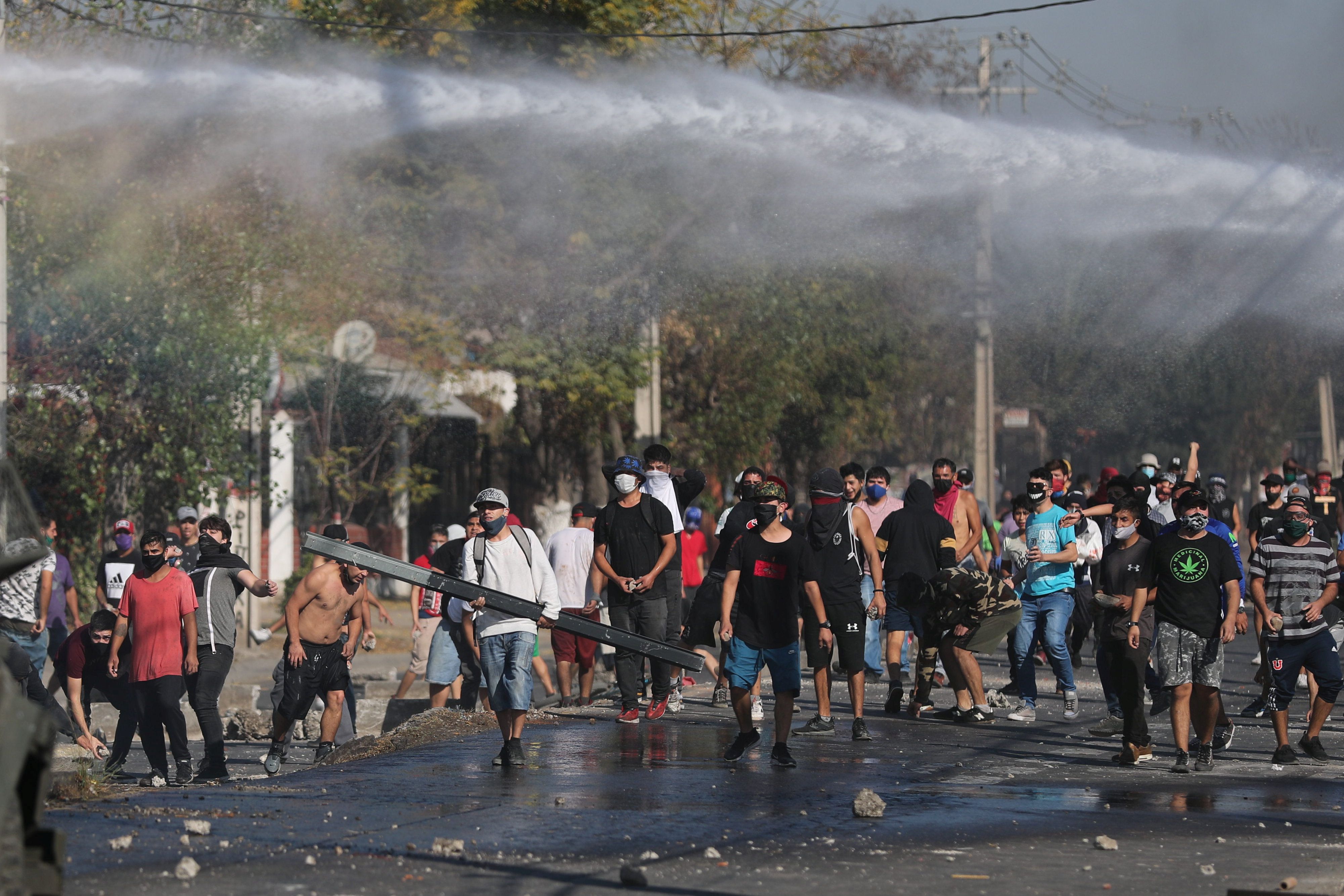Latin America & Caribbean
May 19, 2020
Chileans take to the streets: When Chile declared a state of emergency in response to the coronavirus pandemic in mid-March, the country's months-long mass protests about inequality fizzled fast. But now the lockdown measures themselves are causing unrest. Riot police on Tuesday clashed with demonstrators in a Santiago suburb protesting food shortages under lockdown. The upheaval comes just days after a fresh surge in cases prompted the government to reimpose quarantine measures in the capital region. Chile has so far confirmed about 46,000 cases and just under 500 deaths. President Sebastian Piñera — who pledged an additional 2.5 million food baskets — has the difficult task of balancing public health concerns with economic ones in one of the most unequal countries in the world.
Afghan doctors demand their pay: Hundreds of medical workers in Herat, Afghanistan's third largest city, staged a walk out Tuesday because they haven't received their government-paid wages in three months despite being on the frontlines of COVID-19. The doctors and nurses who staff the city's 10 government-run hospitals say they continue to go to work despite a shortage of testing materials and protective equipment, but that they shouldn't be expected to do so for free. The government, for its part, says it's working on addressing the problem. These protests add mounting pressure on an already-stretched Afghan government, whose weak healthcare system is overwhelmed by both a surge in coronavirus cases and new war injuries amid clashes between Taliban militants and Afghan security forces. Violence has, in fact, increased since the US-Taliban peace deal was signed earlier this year.
How sick is Belgium? According to Johns Hopkins, Belgium has the highest COVID-19 mortality rate in the world. An estimated 16.3 of every 100 confirmed cases (compared to 6 in the US) has died. Belgium also has the highest death rate per 100,000 people. Why? One reason is that countries measure the disease's impact in different ways. In some, deaths are attributed to COVID only if the deceased tested positive for the virus before dying. But Belgium, by contrast, looks at the number of people who die during a particular month and compares that to past averages of deaths over the same period to determine the rate of "excess deaths" attributable to the pandemic. Some scientists say the larger number produced by that method is more accurate. Others disagree. Isn't it possible, they ask, that people with illnesses unrelated to COVID are now dying at higher rates because fear of catching it dissuades them from seeking medical treatment? As the stats debate continues, Belgium continues to distinguish itself as one of the very few places willing to post high numbers.
More For You
Ian Bremmer sits down with former US Ambassador to NATO Ivo Daalder to unpack a historic shift in the transatlantic alliance: Europe is preparing to defend itself without its American safety net.
Most Popular
Think you know what's going on around the world? Here's your chance to prove it.
U.S President Donald Trump, U.S. Vice President JD Vance, and U.S. Secretary of State Marco Rubio pose for a family photo with other representatives participating in the inaugural Board of Peace meeting, at the U.S. Institute of Peace in Washington, D.C., U.S., February 19, 2026.
REUTERS/Kevin Lamarque
Argentina, Armenia, Belarus, Egypt, Indonesia, Jordan, Pakistan, Paraguay, Vietnam – to name only a few.
A poster featuring Andrew Mountbatten-Windsor, formerly known as Prince Andrew, is installed on a sign leading to the parking area of the Sandringham Estate in Wolferton, as pressure builds on him to give evidence after the U.S. Justice Department released more records tied to the late financier and convicted sex offender Jeffrey Epstein, in Norfolk, Britain, February 5, 2026.
REUTERS/Isabel Infantes
British police arrested former Prince Andrew Mountbatten-Windsor today over allegations that in 2010, when he was a UK trade envoy, he shared confidential government documents with convicted sex offender Jeffrey Epstein.
© 2025 GZERO Media. All Rights Reserved | A Eurasia Group media company.
